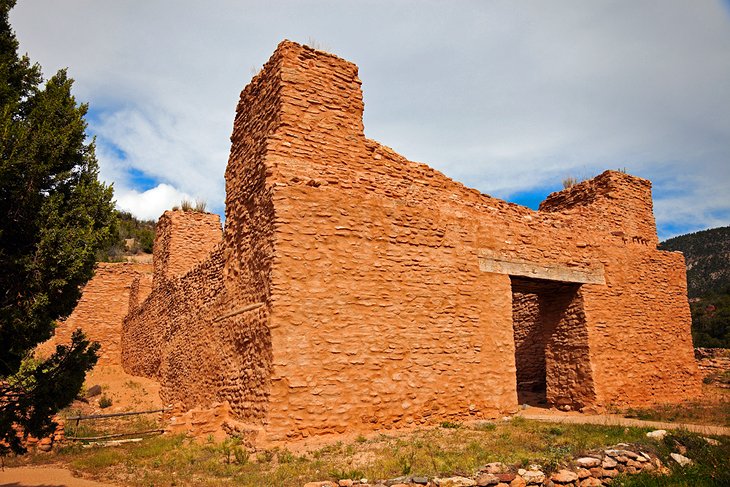
- Details
- By Native News Online Staff
ALBUQUERQUE — Three New Mexico pueblos have surpassed the state’s self-response rate for the 2020 Census.
More than half of the residents of the Pueblos of Cochiti, Kewa and Jemez have responded to the 2020 Census. As of August 25, 56.1% of residents have responded to the Census at Kewa, 55.4% of residents have responded at Cochiti and 56.8% of residents have responded at Jemez. The self-response rate for New Mexico is 54.9%.
This milestone demonstrates the importance of active participation from tribal leadership, the hard work of Tribal Enrollment Departments and the tribes’ Complete Count Committees in partnership with the U.S. Census Bureau and the New Mexico Native Census Coalition. Overseen by the NAVA Education Project, the New Mexico Native Census Coalition is a collaboration of tribes, tribal organizations and nonprofits working toward an accurate count of Indigenous people in the state.
“Although this has been a difficult time for many people, our administration has been committed to ensuring an accurate count of tribal members at Kewa,” Kewa Pueblo Gov. Thomas Moquino, Jr. said. “We understand how an accurate count is tied to resources and political empowerment by way of our participation. We are glad to support the 2020 Census and look forward to seeing our 2020 Census self-response rate continue to rise.”
Just as Census operations began across the state, many tribal leaders closed their borders to stop the spread of COVID-19. Despite the challenges, tribal leaders are taking great measures to ensure their residents are counted. In some cases, tribes have only allowed the Census Bureau to deliver questionnaires to their communities in the past few weeks.
Other tribes, including the Navajo Nation where COVID infections had exceeded the national average, are also seeing daily and weekly increases in self-response rates as residents learn about the new deadline of September 30 to complete the 2020 Census nationwide. The New Mexico Native Census Coalition is encouraging all tribal residents to complete the form today and is offering an incentive to do so.
American Indians, especially those who live on reservations, were the most undercounted demographic group in the last Census. The Bureau estimates that it undercounted Indigenous people in the U.S. by 4.9% in 2010.
The New Mexico Census Coalition has been working in partnership with tribes to reach the goal of a 100% count. The coalition through the NAVA Education Project has provided training, technical assistance and outreach support, including wifi hotspots on many reservations.
“The federal government funds heath care, Head Start, housing, and so many programs in our communities and is reliant on Census data when allocating funding. Millions of dollars are at stake if just a handful of households do not complete the Census,” said Ahtza Chavez, NAVA Education Project Executive Director. “It is imperative that each person in each tribal community is counted and we’re encouraging everyone to complete the 2020 Census as soon as possible. Our communities are counting on it.”
More Stories Like This
Native News Weekly (August 25, 2024): D.C. BriefsUS Presidents in Their Own Words Concerning American Indians
Happy New Year 2026 from Native News Online
Next on Native Bidaské: Covering Indian Country: Lessons from 2025 & the Road Ahead
The Stories That Started to Define Cultivating Culture in 2025
Help us defend tribal sovereignty.
At Native News Online, our mission is rooted in telling the stories that strengthen sovereignty and uplift Indigenous voices — not just at year’s end, but every single day.
Because of your generosity last year, we were able to keep our reporters on the ground in tribal communities, at national gatherings and in the halls of Congress — covering the issues that matter most to Indian Country: sovereignty, culture, education, health and economic opportunity.
That support sustained us through a tough year in 2025. Now, as we look to the year ahead, we need your help right now to ensure warrior journalism remains strong — reporting that defends tribal sovereignty, amplifies Native truth, and holds power accountable.
 The stakes couldn't be higher. Your support keeps Native voices heard, Native stories told and Native sovereignty defended.
The stakes couldn't be higher. Your support keeps Native voices heard, Native stories told and Native sovereignty defended.
Stand with Warrior Journalism today.
Levi Rickert (Potawatomi), Editor & Publisher

